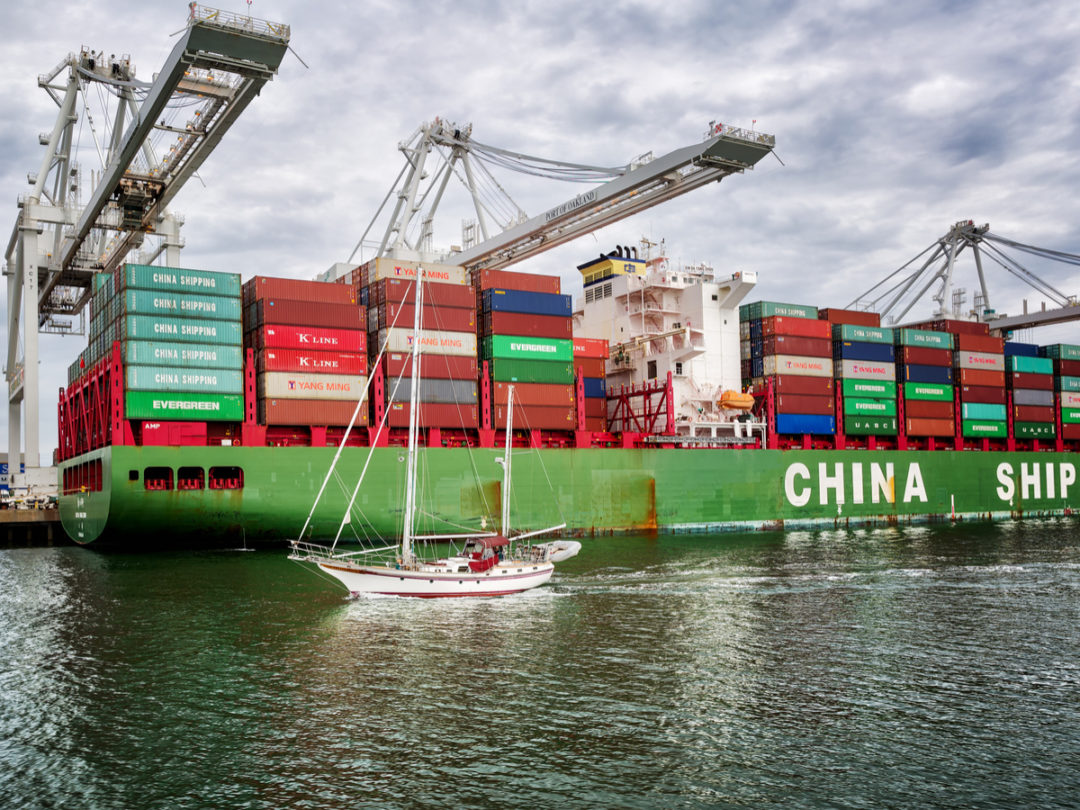
Home » U.S. Is Winning Globalization’s Next Wave — and Not Because of Trade Wars
U.S. Is Winning Globalization’s Next Wave — and Not Because of Trade Wars

January 21, 2019
From Rust Belt America to Europe’s de-industrialized hinterlands, the focus of plenty of economic policy debates in recent years has been on globalization’s victims in the rich world and the political populism they have fed. But what if that’s yesterday’s story?
In a new report researchers at the McKinsey Global Institute argue that even before President Donald Trump launched his trade wars, the era of offshoring and disruption that left many factory towns in the advanced world reeling was over. They also predict that shifting trends in technology and manufacturing mean advanced economies including the U.S. may be in the best position to benefit from a new wave of globalization already underway.
“We have already started the next chapter of globalization and we think it’s important for everyone — companies and policy makers — to realize which chapter we are in. Not make the mistake that the world is as it was in the 1990s and early 2000s,” said Susan Lund, one of the authors of the report.
The McKinsey team’s work came just ahead of this week’s World Economic Forum in Davos, where the future of globalization and its various new iterations are at the top of the agenda. It also hits at a broader debate over just how much shape-shifting Trump’s trade wars are causing in the global economy.
Tariffs imposed over the past year by the Trump administration on imports from China and foreign aluminum, steel, solar panels and washing machines have caused many U.S. trading partners to fire back with import taxes of their own. As a result, many companies have started to reexamine and even alter their international supply chains.
But rather than causing a new shift, the tariffs are simply speeding up one that began in the mid-2000s that had been masked by the economic fallout from the 2008 financial crisis, the McKinsey report’s authors argue.
“Companies are responding but if anything some of the new tariffs and trade barriers are accelerating trends that we saw taking place anyway,’’ Lund said.
For their study the McKinsey researchers looked at the supply chains of 23 industries spanning 43 countries from 1995 to 2017.
Over that time they predictably found big emerging economies playing a growing role. Emerging markets’ share of global consumption rose by roughly 50 percent over the past decade with 40 percent of advanced economies’ exports now heading for emerging economies.
Labor Costs
They also found labor costs were playing a declining role in decisions over where to locate production and that investments in intangible assets such as intellectual property and research had since 2000 more than doubled as a share of revenue from 5.5 percent to 13.1 percent.
Those findings, Lund said, point to why the next wave of globalization plays to the strengths of the American economy.
With the increasing importance of innovation, companies put a premium on protecting intellectual property and the rule of law as well as skilled workforces, or things that they can find in developed economies like the U.S. At the same time, data and services are playing a growing role in globalization, shifting the push for economic integration into areas where the U.S. has a real advantage.
“All of those things really create tailwinds for the U.S. and other advanced economies,” Lund said.
Tech Change
Technology is also changing manufacturing with companies now opening high-tech factories closer to rich-world consumers in a way that is already starting to cause a return of some industries and that may leave poorer countries dependent on labor-intensive exports the new victims.
As an example Lund points to shoemaker Adidas, which in the past two years has opened highly automated sneaker factories in Germany and outside Atlanta, effectively bringing production home from hubs in Indonesia and Vietnam.
Manufacturing employment has been growing in the U.S. in recent years. But any manufacturing returning home is far less labor intensive than what left. “The work is going to be different,” Lund said. “I don’t think it is going to create millions of manufacturing production line jobs.’’
RELATED CONTENT
RELATED VIDEOS
KEYWORDS Apparel Asia Pacific China Global Logistics Global Supply Chain Management Global Trade & Economics Global Trade Management HR & Labor Management Industrial Manufacturing North America SC Finance & Revenue Management SC Planning & Optimization Sourcing/Procurement/SCM Supply Chain Analysis & Consulting Supply Chain Visibility Technology
Subscribe to our Daily Newsletter!
Timely, incisive articles delivered directly to your inbox.
Popular Stories

2024 Supply Chain Management Resource Guide: There's Only One Way Off a Burning Platform
VIEW THE LATEST ISSUECase Studies
-
Recycled Tagging Fasteners: Small Changes Make a Big Impact
-

Enhancing High-Value Electronics Shipment Security with Tive's Real-Time Tracking
-

Moving Robots Site-to-Site
-
JLL Finds Perfect Warehouse Location, Leading to $15M Grant for Startup
-
Robots Speed Fulfillment to Help Apparel Company Scale for Growth



